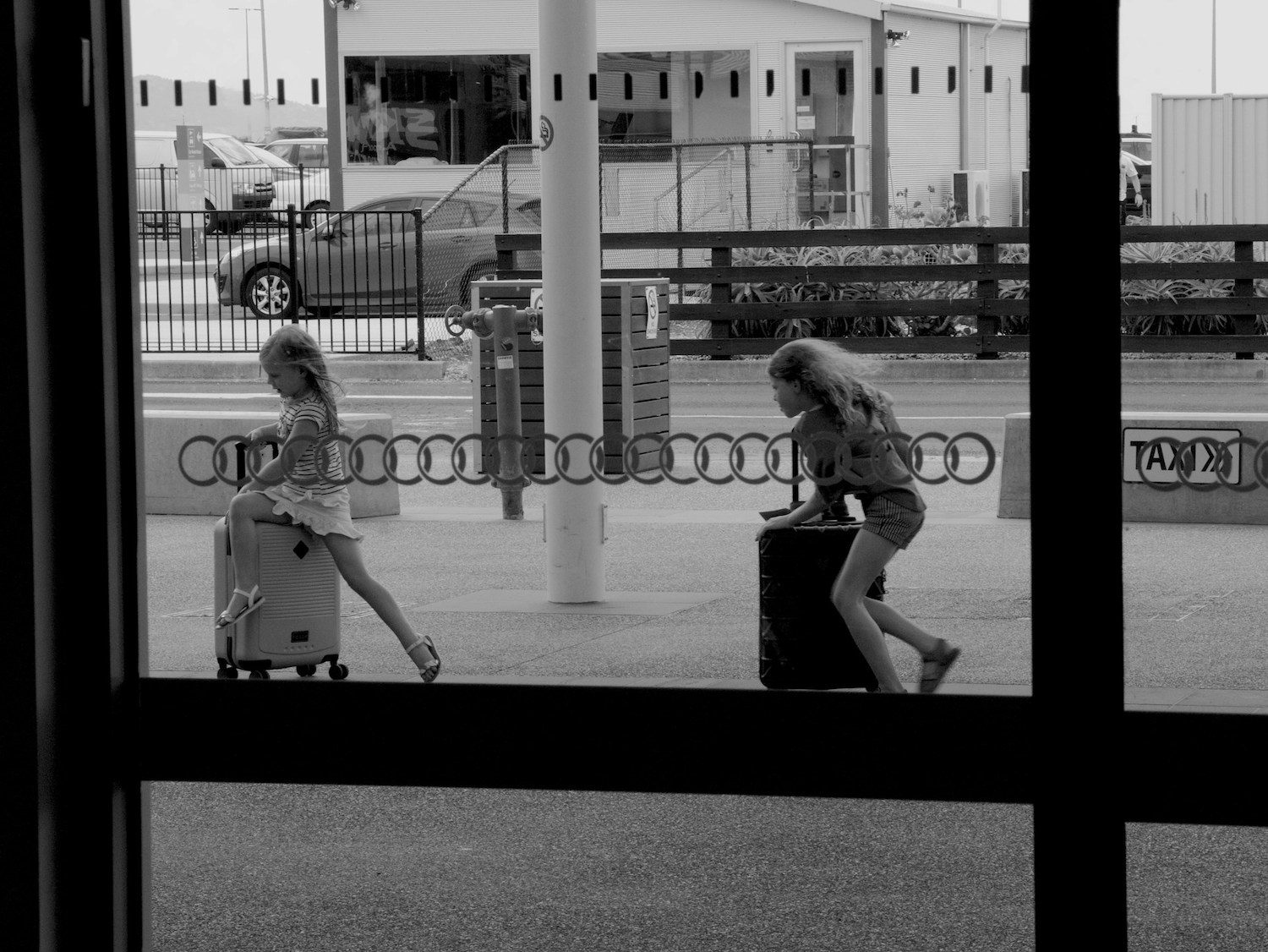For the majority of our partnership, my spouse and I embraced the identity of wanderers. We ventured through Southeast Asia with backpacks, caught waves in Portugal, set up camp in Maine, cruised on motorcycles along the California coastline, and celebrated our honeymoon in New Zealand. Those journeys were not just enjoyable but also filled with excitement and novelty, bringing us immense joy.
However, everything changed when we welcomed our first child into the world. Due to the pandemic, we had to cancel our daughter’s first birthday celebration, unknowingly putting a halt to our travels. Soon after, we became parents to another child. Traveling soon became a distant memory, occasionally revisited through old journals that recounted the vibrant characters and unpredictable moments we encountered on our adventures. Yet, our reminiscences would often be interrupted by the cries of our children, leading one of us to attend to a diaper change, abruptly pulling us back from our wanderlust-induced reverie.
Last autumn, we made the decision to introduce our children, both under five years old, to the wonders of travel by embarking on a trip to visit friends in Austin, Texas. Navigating the complexities of flying with young children, we found ourselves on the brink of experiencing joy once again. However, the sunny escape we anticipated from chilly Boston turned out to be characterized by drizzly skies and moderate temperatures. Compounded by the constraints of naptime, our excursions were limited and confined to stroller-friendly locations. To add to the challenges, on the second night of our stay, our daughter had a memorable moment reminiscent of a scene from “The Exorcist,” as she projectile vomited and screamed in the home of our gracious hosts, disrupting everyone’s sleep. As I groggily cleaned up the mess with a spray bottle and a roll of paper towels, the thought crossed my mind – was this truly “fun”?
In many ways, this experience paralleled my numerous Zen retreats, where I engaged in chores, endured uncomfortable positions, and pondered, amidst physical strain and exhaustion, whether this was indeed “fun.” Despite these moments of doubt, I found myself returning to these retreats time and again, having participated in over thirty retreats in the past two decades. When asked about my post-retreat experiences, I often sum it up as “hard but good,” encapsulating the challenges and rewards without delving into the relaxing nature of the experience.
During our time in Austin, the concept of “fun,” or the lack thereof, became a recurring topic of discussion with our friends, who were also parents to young children. I shared my recent fascination with the idea of “type two fun,” a notion popular among enthusiasts of arduous outdoor activities. This concept suggests that engaging in activities that may not be immediately enjoyable, such as running five miles in freezing rain on muddy trails, can lead to post-experience satisfaction that outweighs the initial discomfort. Perhaps some of us are drawn to what could be termed as “funishment.” Does parenting inherently entail fun? Can parenting be viewed as a form of mindfulness practice?
Having weathered (pun intended) countless hours of both parenting and meditation practices, I began to see parallels between the two. Neither Buddhism nor parenting guarantees a constant state of fun. It can be disillusioning for newcomers to both meditation and parenting to realize that moments of bliss coexist with periods of boredom, and that reality often diverges from our expectations. Our bodies and minds exhibit erratic behaviors that do not always align with our surroundings, whether it manifests as a child vomiting unexpectedly or our minds wandering during meditation.
The allure of fun is pervasive in our culture, with social media showcasing idealized versions of enjoyment that may not always reflect reality. Reflecting on my past travels, I acknowledge that while I pursued exhilarating experiences, I was also escaping a sense of discontent and seeking fulfillment. The pursuit of fun can lead to a cycle of constantly chasing heightened experiences, fostering a restless state of dissatisfaction.
In a conversation with Buddhist scholar Andrew Olendzki, the director of the Mindfulness Studies program at Lesley University, he emphasized the importance of experiencing the full spectrum of emotions with equanimity in Buddhist practice. The goal is not to prioritize joy over sorrow or pleasure over pain but to embrace all feelings without bias. By recognizing the discord between our expectations of fun and reality, we can release preconceived notions and make room for a nuanced range of emotional experiences. Meditation allows us to confront the suffering that arises from our unrealistic expectations, enabling us to appreciate the richness of every moment, even amidst discomfort.
Parenting and meditation offer opportunities to exchange fleeting moments of fun for deeper, enduring challenges. They encourage us to transcend our self-centered perspectives, cultivate compassion, and expand our horizons beyond personal gratification. Through these experiences, we learn to detach from our ego-driven desires and care for others with empathy. While my trip to Austin presented its challenges, including the memorable incident with my daughter, it also offered moments of respite and reflection. Fun may be transient, but the profound act of tending to a sick child and being present in that moment can leave a lasting impact. Ultimately, the journey was arduous yet rewarding.

